What are the Implications of Egypt’s Overpopulation?
By Salma Heram / Arab America Contributing Writer
Introduction
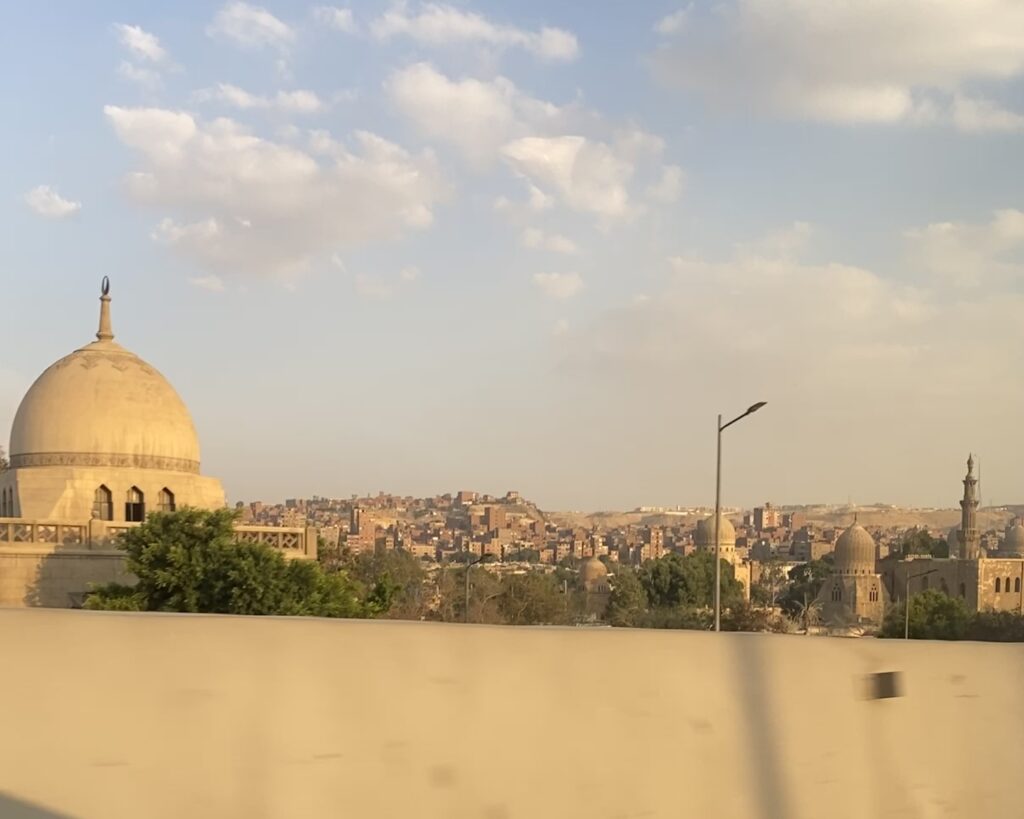
The Arab Republic of Egypt, considered one of the most important nations of the Arab world due to its integral position on both the geographical and political scale, has the highest population in the Arab world, one that remains steadily increasing. As of publication, its population sits between 105 to 112 million, depending on one’s chosen data source. As such, the country’s rising population and steady birth rate has taken a position of top priority for the government, pushing it to implement a series of policies in an attempt to mitigate population growth. Furthermore, the country’s overpopulation has direct implications for Egyptian citizens, the effects of which are experienced most directly by the middle and lower classes. Read on as I detail these implications, as well as reflect on my perspective on the topic after my visit to Egypt as an Egyptian-American living in the diaspora.
How Did This Happen?
There are many contributing factors and social determinants that drive Egypt’s population boom. While some point to illiteracy and cultural beliefs, others place the blame on many Egyptians’ socioeconomic status and the country’s existing gender roles. However, it seems that Egypt’s distinct cultural values of family and familial responsibilities have the most influence on its booming population. After consulting with Egyptians from all walks of life, below I discuss several of these factors, and identify the most significant.
Access to Education and Literacy Rates
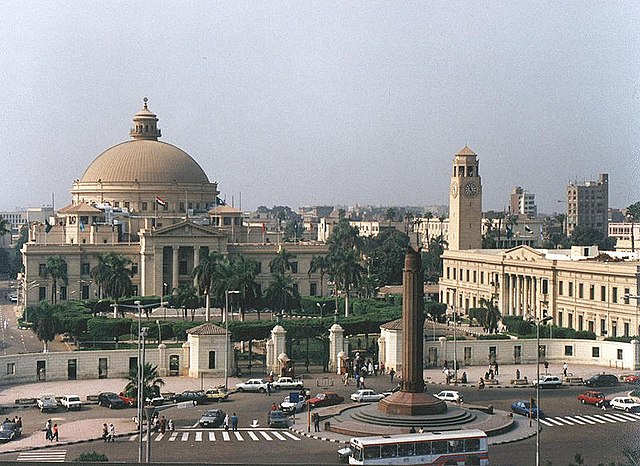
Some point to the lack of education and low literacy rates among Egyptian women as a reason for Egypt’s population boom. This may have been the case in the past, when women of childbearing age back then are now elderly. For example, according to the World Bank, the literacy rate for women ages 15 and above was 22% in 1976. So, a woman that was 20 years old then would be 67 today, most likely having already borne all of her children and contributed to Egypt’s growing population. According to this statistic, it is likely that our example woman was not literate, a factor that is more likely the less wealthy she was, which may have contributed to a lack of quality healthcare access, poverty, and more. As such, the illiteracy argument may be sound for Egypt’s current adult population. However, this does not explain its heightened number of children, because in 2021, the literacy rate among women aged 15 and above was 67%, the highest it’s ever been. As such, it’s unlikely that illiteracy and lack of access to education among Egypt’s women is the sole reason for its overpopulation. In fact, continuously pushing this narrative of Egyptian women being uneducated and illiterate is not only false, but also perpetuates a racist, prejudiced idea of uneducated, oppressed Arab women.
Religious Beliefs
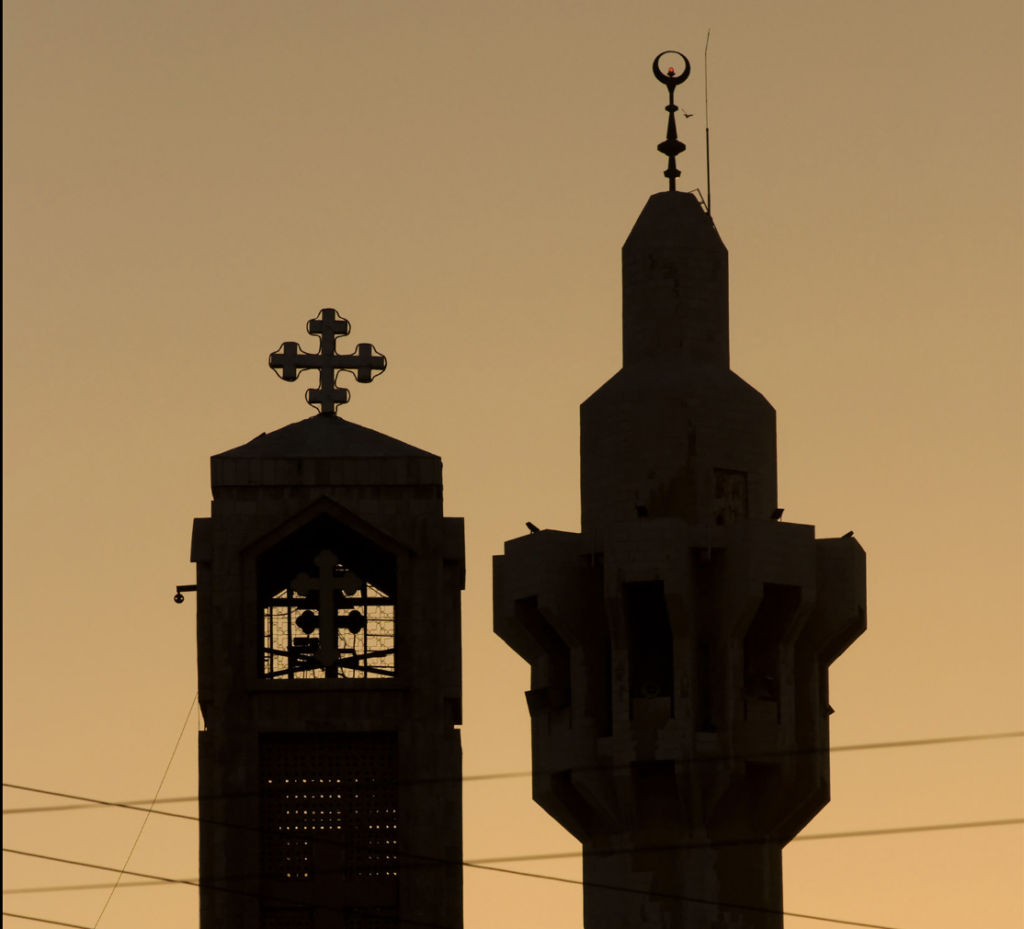
Others suggest the cultural stigma surrounding the use of birth control methods, saying that even if a woman is educated on the uses of birth control and has access to it, she would still opt out of using it due to cultural and religious taboos. This seems more feasible, as issues of sexual and reproductive health remain a topic of controversy across both the East and West, and the Egyptian government seems to have caught on. In fact, government officials have worked with religious leaders of both of Egypt’s major religious sects – Sunni Islam and Coptic Christianity – to address strongly-held religious beliefs on the permissibility of birth control.
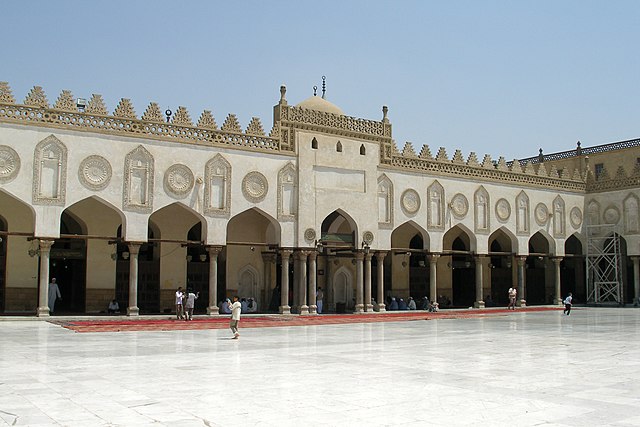
Because the vast majority of Egyptians are Muslim, most of the focus has been on this community, with Al-Azhar University, one of the world’s prominent centers of Islamic scholarship, being consulted by government officials on the issue. Al-Azhar has been quite clear on its stance, distinguishing between tanzeem and tahdeed, or family planning and birth control. Al-Azhar deems family planning halal, or permissible, in which a couple can plan the periods in between pregnancies using their own reasoning and keeping in mind their personal capabilities as parents. However, the use of birth control in a manner that maintains restriction, or tahdeed, remains haram, as “a person makes a prior decision to have a certain number of children and behaves accordingly from the beginning by preventing pregnancy.”
Some argue that birth control is permissible for those in extreme poverty, as they often do not have the means to provide for their children. However, most major religious scholars continue to hold this as haram, citing verse 31 of Surat Al-Isra in the Holy Quran: “And do not kill your children for fear of poverty. We [Allah (SWT)] provide for them and for you. Surely killing them is a heinous sin.” As such, Muslims believe that all blessings are from Allah, and that he provides for everyone as He sees fit, and further that children themselves are blessings from Allah, so who are we as humans to deny his blessings and to not have faith in his providing for us and our children?
Socioeconomic Status and Cultural Values
Another important reason for many Egyptians having several children is the economic benefit that comes with them. While this may seem counterintuitive, as raising and feeding children is expensive, for many rural Egyptians and those living in poverty, the benefits outweigh these costs. In Egypt, most young boys begin to learn their father’s trade as early as six years old, whether he is a farmer, merchant, shopkeeper, cattle raiser, electrician, street vendor, tailor, etc. Likewise, girls are able to help their mothers around the home and with gathering harvests in the case of farming families. As such, children become a financial asset to their families, helping them garner profit by becoming another helping hand in whatever their source of income. Additionally, gender roles play a role in Egypt’s population boom. Families will often keep having children until they have a boy, as boys are seen as a significant asset to the family, from physical and financial protection to respect and social status.
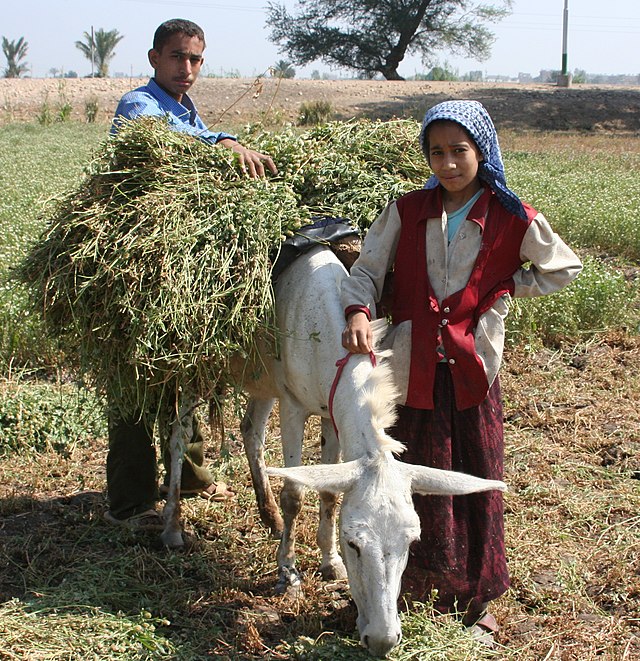
Furthermore, in Egyptian culture, familial values and one’s responsibility to their family is of extreme importance. For many Egyptian couples, having children is essentially an investment in their own life. Aside from financial investment, having children ensures that you will be well taken care of and supported when you are elderly, as Egyptian culture places strong emphasis on children’s responsibility to their parents. While in Western culture many people become disconnected or distanced from their families once they reach adulthood, often moving out at the age of 18, Egyptian culture values familial ties. Egyptian children stay in their parent’s home until they are married, and even then, their parents are still responsible for them until the parents are elderly, at which time it is the children’s turn to care for their parents. Therefore, the more children one has, the more well taken care of they are likely to be in their old age. This idea remains an important reason for Egyptians choosing to have large families and contributing to the country’s growing population.
Implications
The societal effects of Egypt’s overpopulation are stark, with implications in every aspect of society from health, economy, politics, infrastructure, and more. Because Egypt’s population is concentrated within the Nile River Valley, its overpopulation becomes overcrowded, with overwhelming population density. As such, diseases are more easily spread, hospitals are overcrowded and difficult to access, the economy plummets, and public institutions like schools and government programs find it more difficult to address everyone’s needs. Additionally, environmental pollution continues to increase, while congestion and traffic jams remain a daily nuisance in the country. Egypt is thus in dire need of drastic change in order to support its growing population.
Reflections and Looking Toward the Future
While passing through the streets of Cairo, Egypt’s most populous city, it quickly became apparent to me how Egyptians cope with the overcrowding. It’s impossible to miss the towering apartment buildings, many of which are mixed-use, with company offices, clinics, businesses, and doctor’s offices on the same floors as residential apartments. In many areas, people have also started utilizing the space underneath bridges and highways, opening up shops, restaurants, and parking lots with the added benefit of shade from the sun’s scorching heat.
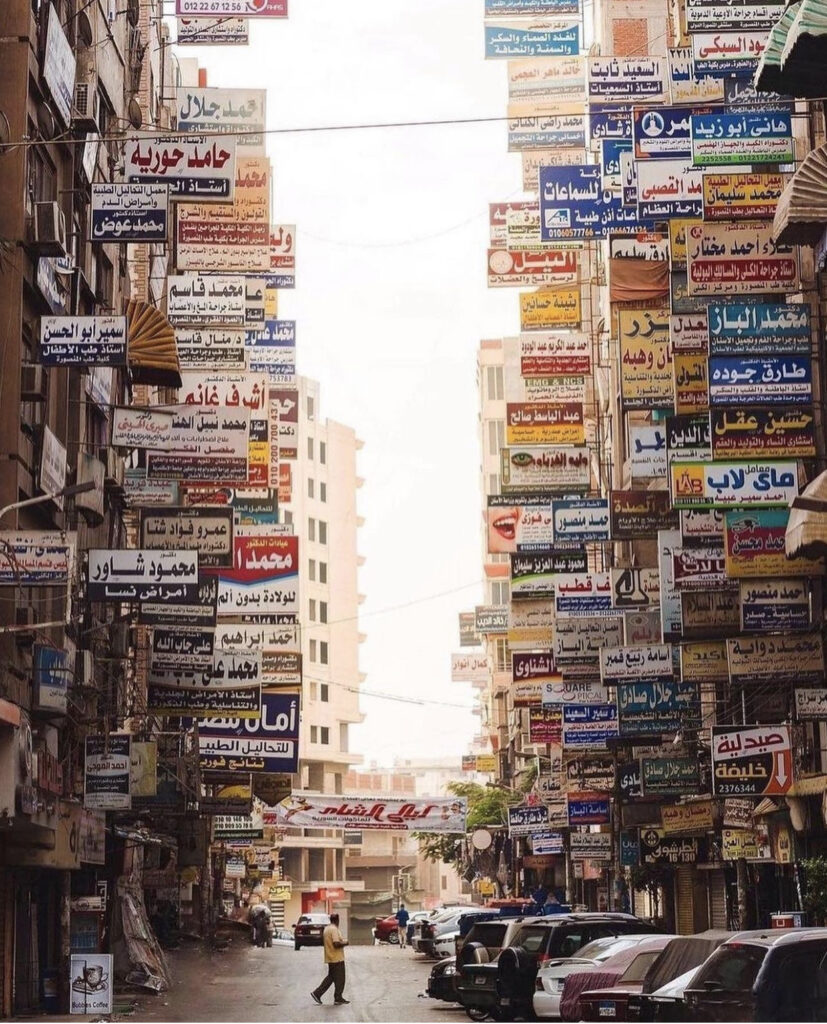
While these solutions to the ever-tightening space available are innovative, definitive changes need to be made for the good of the country. Most importantly, horizontal expansion of the country is necessary to accommodate Egypt’s population. While attempts to control and decrease the population via family planning campaigns are beneficial and partially effective, the already existing population cannot continue to live in overcrowded conditions for long. As such, it is imperative to begin horizontal expansion and development into the untouched areas of the Sahara, while also ensuring that these new developments are affordable for the average Egyptian citizen and not only the elite and upper classes. Only then can Egypt continue to flourish to its full potential, allowing its exemplary minds and hardworking bodies the space to truly thrive.
Check out Arab America’s blog here!









